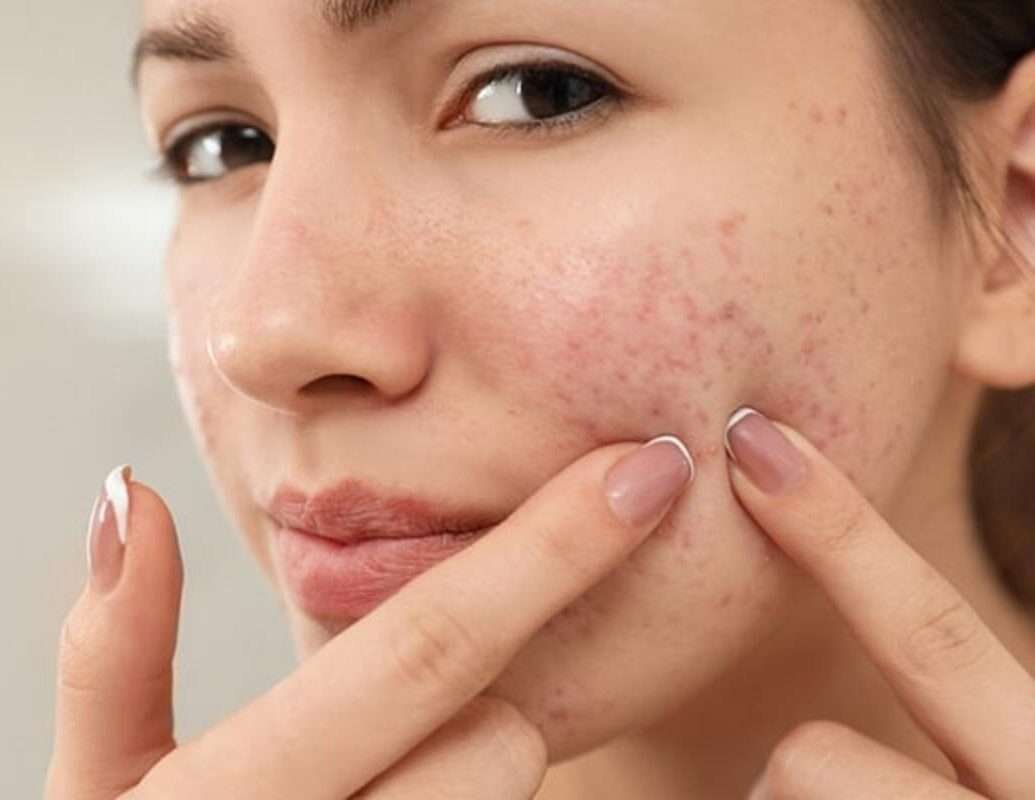
Blog
Understanding Acne: Causes, Types, and Effective Treatments

Acne is a common yet complex skin condition that can affect individuals at any age. It’s more than just a cosmetic issue—persistent breakouts can leave behind scars, both physical and emotional. From mild blackheads to painful cysts, acne varies in form and severity, but with the right approach, it can be effectively managed. The first step? Understanding what causes it and how to treat it.
What Really Causes Acne?
Acne forms when natural skin processes are disrupted, leading to clogged pores and inflammation. The primary causes include:
-
Excess Oil (Sebum) Production: Overactive sebaceous glands produce more oil than the skin needs, clogging pores.
-
Clogged Hair Follicles: Dead skin cells combine with sebum, blocking hair follicles and forming comedones.
-
Bacterial Growth: The bacteria Cutibacterium acnes thrives in clogged pores, triggering infections and inflammation.
-
Inflammation: The body’s immune response results in redness, swelling, and tenderness.
Common Acne Triggers
In addition to biological factors, several lifestyle habits and external factors can aggravate acne:
-
Hormonal Changes: Fluctuations during puberty, menstruation, pregnancy, or due to conditions like PCOS often intensify oil production.
-
Genetics: A family history of acne can increase your risk.
-
Stress: Elevated cortisol levels may stimulate sebaceous glands, worsening breakouts.
-
Diet: High-glycemic foods and excessive dairy intake are often linked to acne flare-ups.
-
Skincare Products: Using harsh, comedogenic, or overly fragranced products can clog pores and irritate skin.
Different Types of Acne
Understanding your acne type helps determine the best course of treatment:
-
Comedonal Acne: Characterized by blackheads and whiteheads; typically non-inflammatory.
-
Inflammatory Acne: Includes red, swollen pimples often caused by bacterial activity.
-
Cystic Acne: Deep, painful nodules under the skin, often requiring medical treatment.
The Emotional Toll of Acne
Acne affects more than your skin. It can impact your mental well-being, causing low self-esteem, anxiety, and even depression. This is why a truly effective treatment plan should consider both physical and emotional health.
Proven Acne Treatments
Treatment varies based on the type and severity of acne. Options include:
Over-the-Counter (OTC) Products:
-
Benzoyl Peroxide: Fights bacteria and reduces inflammation.
-
Salicylic Acid: Helps unclog pores and prevent future breakouts.
-
Alpha Hydroxy Acids (AHAs): Promote exfoliation and skin renewal.
Prescription Medications:
-
Topical Retinoids (e.g., Retino-A): Encourage cell turnover and unclog pores.
-
Topical or Oral Antibiotics: Target bacteria and reduce inflammation.
-
Oral Isotretinoin: A powerful option for cystic acne; used under strict medical supervision.
Skincare Tips for Acne-Prone Skin
Gentle, consistent care is essential for managing acne:
-
Cleanse Twice Daily: Use a mild, non-irritating cleanser.
-
Moisturize Smartly: Choose oil-free, non-comedogenic products.
-
Apply SPF Daily: Sun protection is crucial, especially when using active ingredients like retinoids.
-
Don’t Pick or Squeeze: Doing so increases the risk of scarring and worsens inflammation.
-
Stick to a Routine: Avoid frequently switching products, as this can stress the skin.
Lifestyle Choices for Clearer Skin
What you do outside the bathroom matters too:
-
Eat Clean: Prioritize fresh fruits, vegetables, whole grains, and healthy fats while limiting sugar and processed foods.
-
Manage Stress: Try meditation, exercise, or hobbies to keep stress levels in check.
-
Stay Hydrated: Drinking enough water supports skin balance and detoxification.
-
Get Quality Sleep: Your skin repairs and regenerates overnight—don’t skip on rest.
Your Journey to Clearer Skin Starts Here
Acne can be frustrating, but it’s manageable. Whether you opt for OTC treatments or dermatologist-prescribed medications like topical retinoids, the key is consistency, patience, and a tailored routine.
Consulting a skincare professional can help you develop a personalized plan that addresses your unique skin type and concerns. With the right care and commitment, you can reduce breakouts, restore your skin’s health, and regain the confidence that comes with it.
